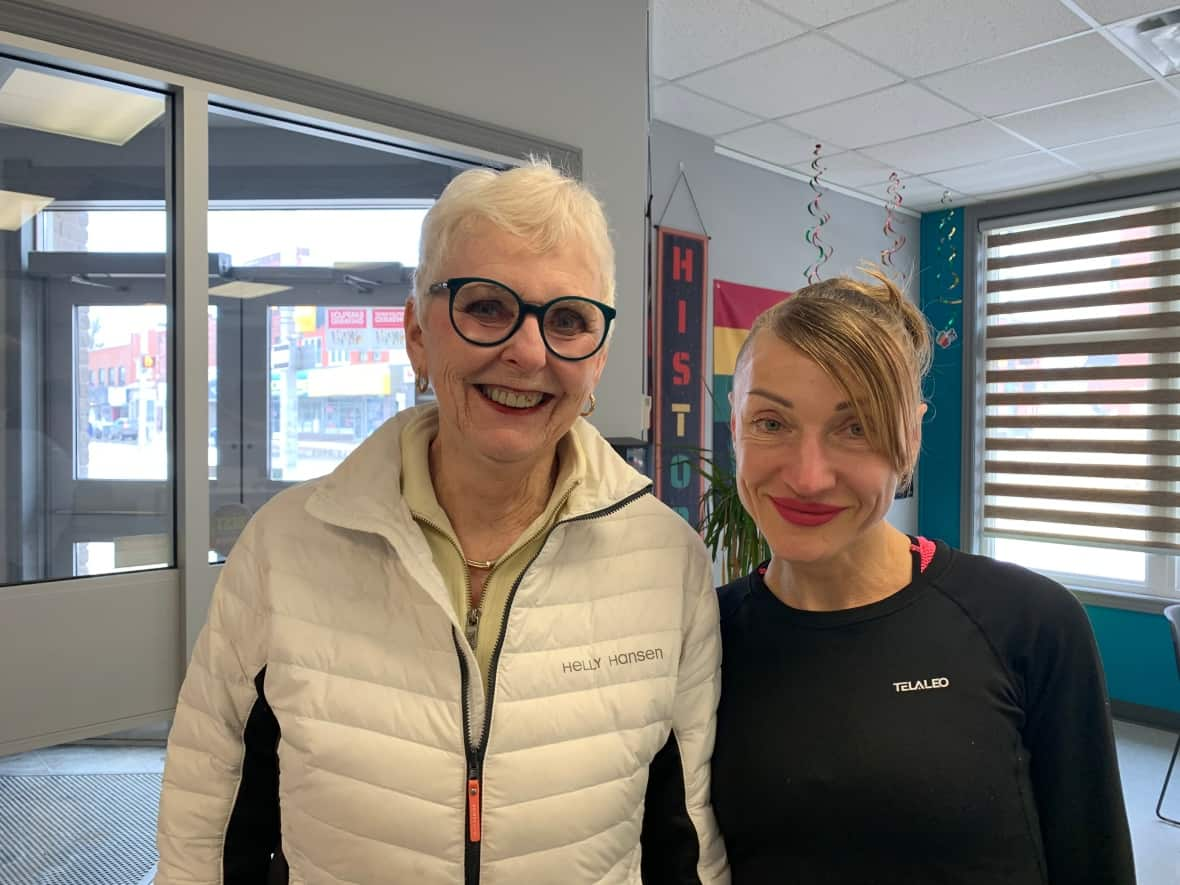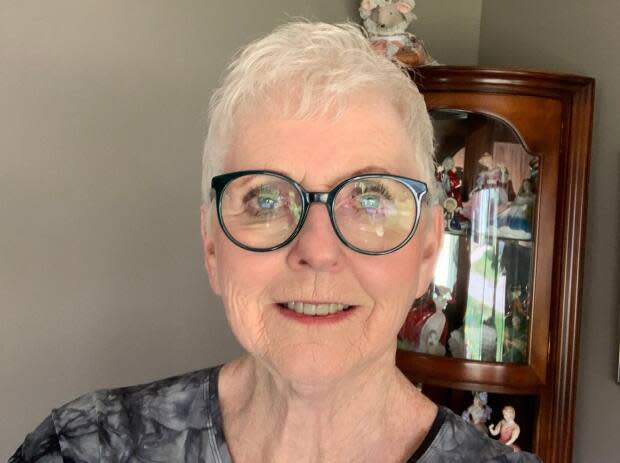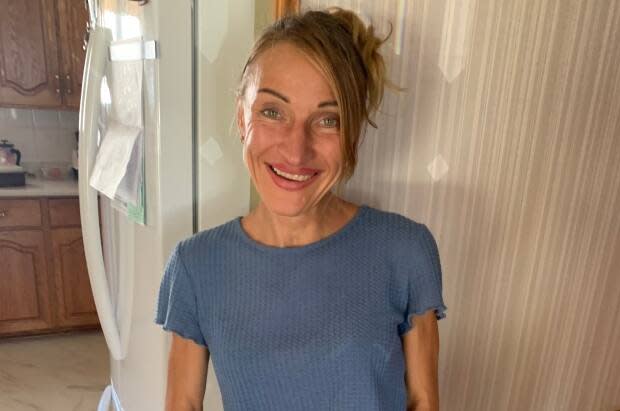Sault Ste. Marie senior wants the federal government to increase support for displaced Ukrainians

A Sault Ste. Marie woman who opened her home to a displaced Ukrainian mother and son says it's time for the federal government to step up to help the Ukrainians become independent.
Donna Hagarty didn't expect to still have housemates seven months later with no prospects for them to move on, and the almost 75-year-old says she's tired.
Like many Canadians, Hagarty's initial heartfelt response to hearing about the war in Ukraine was to offer what help she could to Ukrainian nationals fleeing shelling and bombs.
The senior put her name on a list to act as a host for any displaced Ukrainians who chose to relocate to Sault Ste. Marie once the Canada-Ukraine Authorization for Emergency Travel program kicked in.

Yulia Hamova and her son applied from Spain after they escaped the bombing of Kharkiv.
The former personal trainer couldn't find work because she doesn't speak Spanish.
She put out a plea on Facebook where another private citizen volunteering to help with paperwork to bring Ukrainians to the Sault, Michael Hore, put her in contact with Hagarty.
Mother and son arrived at the end of last July.
Hagarty, who never had children, said the experience is far from the happy scenario she anticipated.
"I expected it would kind of be like a family unit, you know, but it isn't that way," she said.
She said cultural differences including food preparation and meal times are different.

Hagarty admits that having a now 11-year-old boy in the house is wearing on her, and they are usually at odds.
"I'm old," she said. "I'm 75 years old and I don't have the patience, I guess, that I should with this poor boy and sometimes I feel sorry for him."
Hagarty described tense conversations about manners and behavioural expectations, which she said the boy seems to quickly forgive and forget.
I expected it would kind of be like a family unit, you know, but it isn't that way. - Donna Hagarty
And there are rewarding moments that she described in an email to CBC.
"These people are ordinary, kind people who had a good life in Ukraine and now have nothing and depend on the kindness of others," she said.
"It's horrific. It's beyond difficult. That child probably doesn't know how to express himself but he came downstairs to spend a bit of time with me, an old woman in his eyes, who is always on his case about everything! I think he didn't know how to say 'thank you' or 'I love you, too' or whatever he wanted to say so he came and sat with me and we chatted as best we could."
Hagarty said she enjoys those moments but overall, the tension is creating some health issues for her including high blood pressure. But Yulia doesn't seem to have anywhere else to go.
Hamova said she's been trying to become independent but affordable housing, childcare and transportation are obstacles and she has only been able to find a minimum wage, part-time job so far.
The money goes to food, and Hagarty isn't charging rent or board.
Hamova said she is deeply thankful for the help offered by so many organizations and especially for having a safe place to stay, but is beginning to see the limitations.
"I see now she's tired from us, I understand that," said Hamova.
"Sometimes it's really not easy and we are from a different country and have different cultures and Donna is 74 years, and it's not easy for her to accept other people or other points of view."
We are not like pets that you can take in your house and then throw away if you don't like it. - Yulia Hamova
Hamova said Hagarty did mention that maybe it was time for her to move in with another host family.
"I'm just so tired, you know to depend on people's housing, you always ask for something and I feel so bad about it," she said.
"We are not dogs. We are not like pets that you can take in your house and then throw away if you don't like it."
A statement from Immigration Refugees and Citizenship Canada (IRCC) said newcomers are expected to "leverage our existing temporary resident visa processes, networks and infrastructure."
They're eligible to apply for a one-time payment of $3,000 for emergency costs and their visas are good for three years.
They're prohibited from working with children or in health care.
"This is not a refugee program as Ukrainians have indicated that they need temporary safe harbour, and many of them intend to return to their home country when it will be safe to do so, therefore IRCC does not decide and cannot track where they spend the duration of their stay," the statement said.
Hamova said returning home is not an option for her considering it has been destroyed in shelling.
Her situation is not unique, according to Ann Semotiuk, who is a member of the resettlement committee with the Ukrainian Canadian Congress in Toronto.
Semotiuk said the challenges facing the many single mothers coming to Canada can be daunting and some have ended up in that city's shelter system.
While there may be a more organized support network in the big city, Semotiuk said housing is incredibly expensive so the committee often recommends newcomers move on.
"So we do encourage them to go to smaller communities where housing is more affordable and where jobs may be available," she said.
"There are other provinces that are actually recruiting Ukrainians to come to them because they do have jobs and they have housing and they are providing support. Manitoba and some Maritime provinces and Newfoundland are examples of that."
But Sault Ste. Marie is where Hamova and her son ended up.
Many of the clients we've serviced and helped here have been able to transition to some level of independence but everyone's journey is a little bit different. - Adam Pinder, executive director Sault Community Career Centre
The primary support in that city for newcomer resettlement and employment is at the Sault Community Career Centre.
Adam Pinder is the executive director and said overall, he feels they've been successful in helping Ukrainians in that city become independent.
Pinder said 57 displaced people ranging from children to grandparents have moved to the Sault and they've found jobs for about a third of them across a variety of sectors. Many have stable housing.
"We've had some who have sourced and found donated housing through online forums and whatnot and then others who are here and renting and sustaining, you know, their own housing options there too," he said.
"So I think overall for a small community like ours there's been really great success in that file."
Pinder said he's not familiar with Hamova's situation and wouldn't comment, but would reach out to her.
"Many of the clients we've serviced and helped here have been able to transition to some level of independence, but everyone's journey is a little bit different," he said.
Hamova said she tried to get help with a resumé but lack of transportation and difficulty writing in English has hindered her.
For now, Hamova said she takes pride in the progress her son is making.
He has been adapting well to Canada and is involved in sports.
The intermediary who helped with Hamova's visa and application, and one other application, said he does not regret helping them move to Sault Ste. Marie.

Michael Hore is a retired electrical engineer who understands Russian and volunteered to do some administrative work for a group in Sault Ste. Marie looking to attract Ukrainian newcomers.
He said the families are better off than if they had stayed in Toronto because of the cost of living, and he thinks the children have a brighter future
Hore said he sometimes has mixed feelings about what the city can offer and didn't realize it would be so difficult.
"They can't live the dream, they can't get ahead at this point and I don't know what to do," he said.
As for Hagarty and Hamova, the atmosphere at home remains uneasy, but, for now, Hagarty said she can't bear to put the mother and son on the street.


